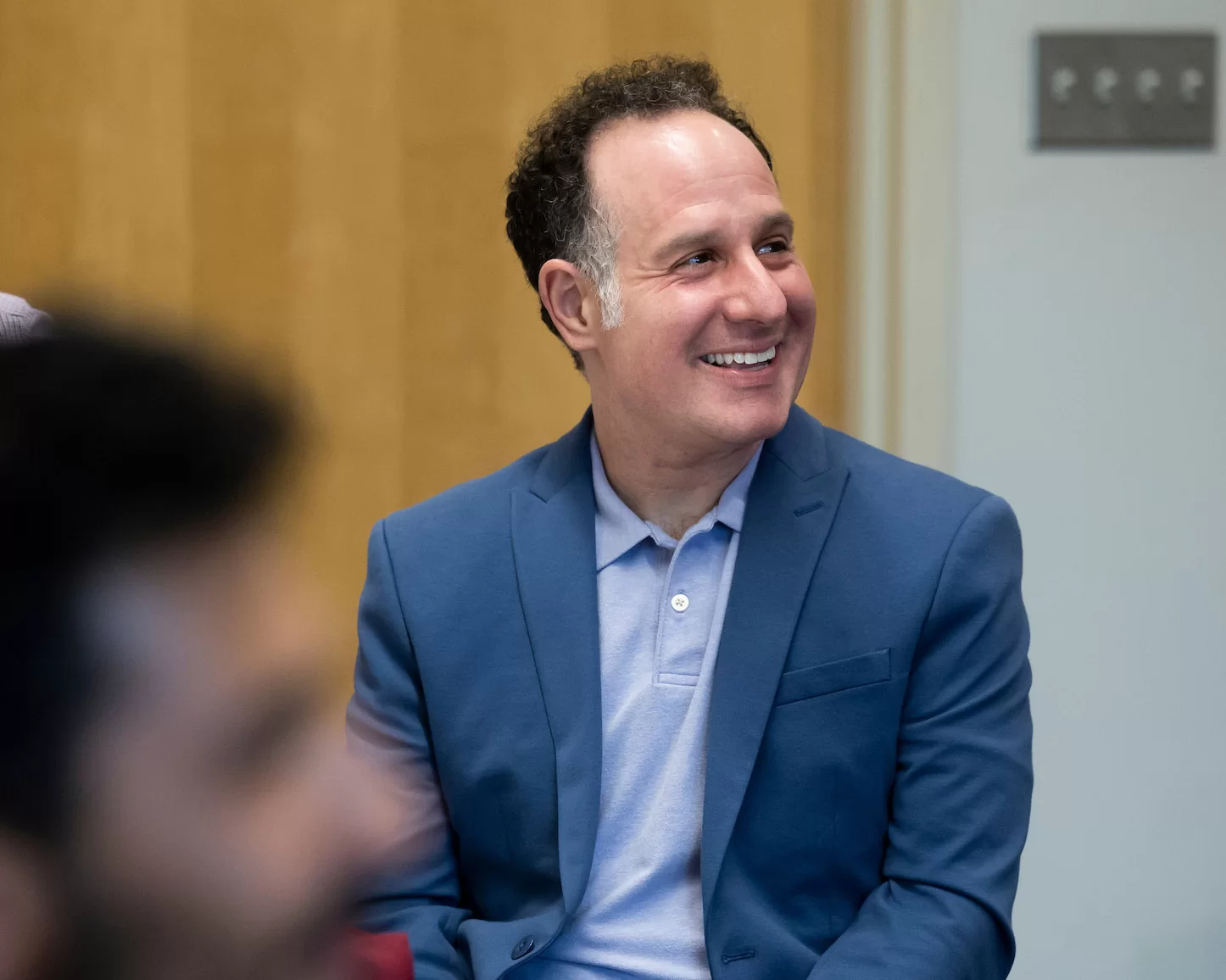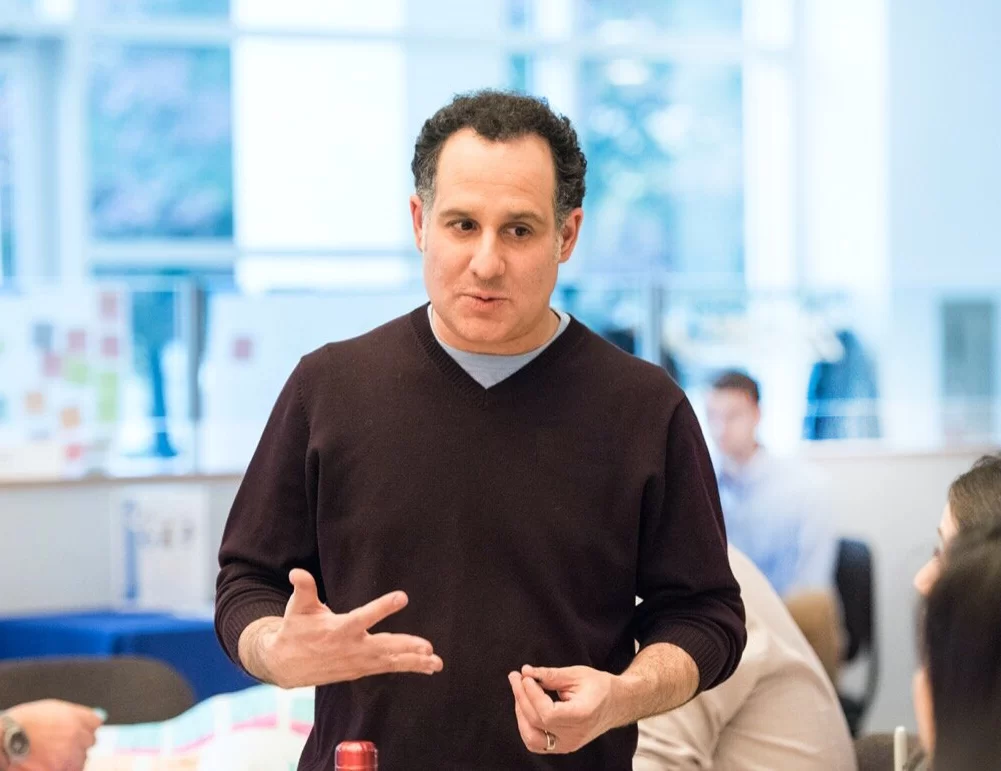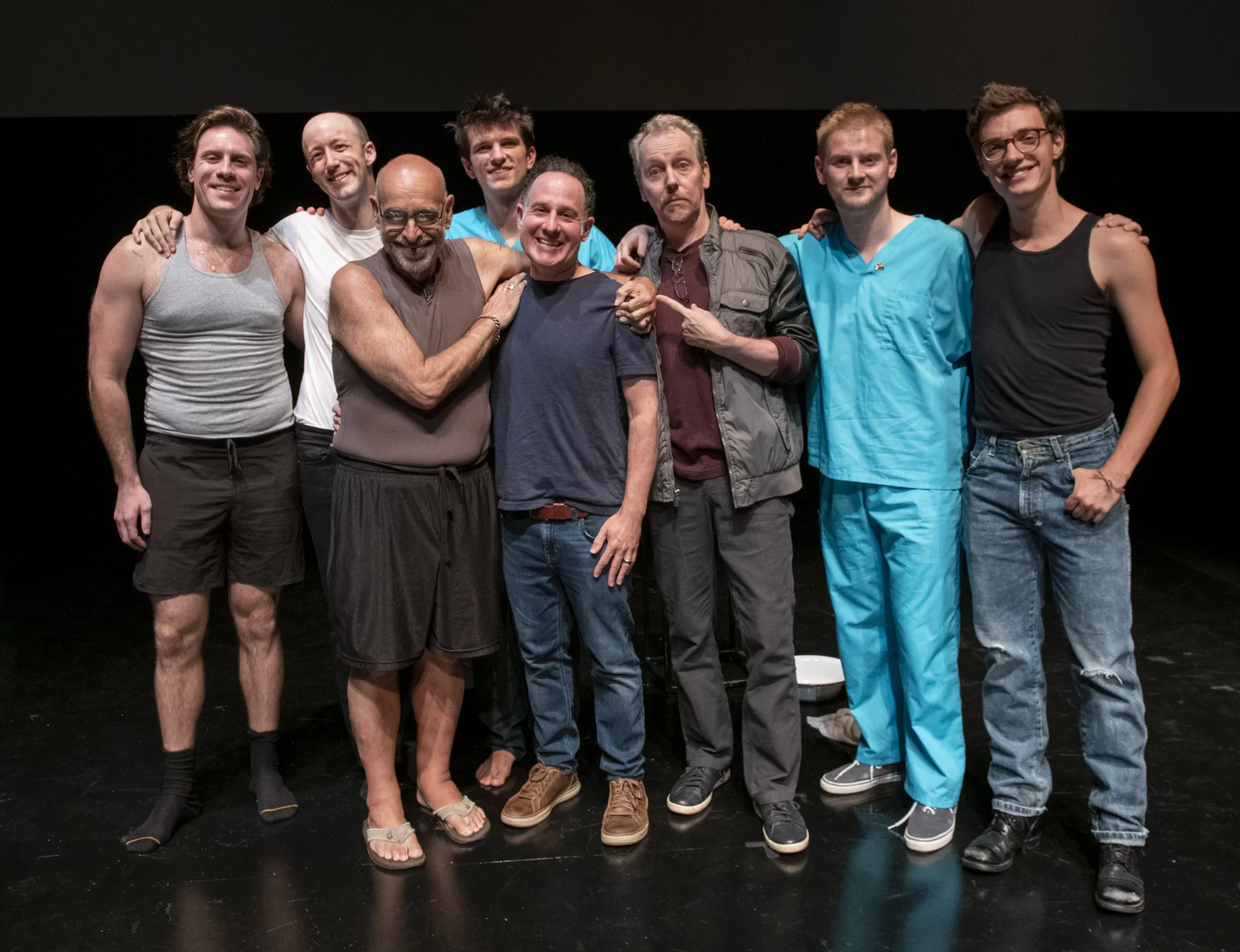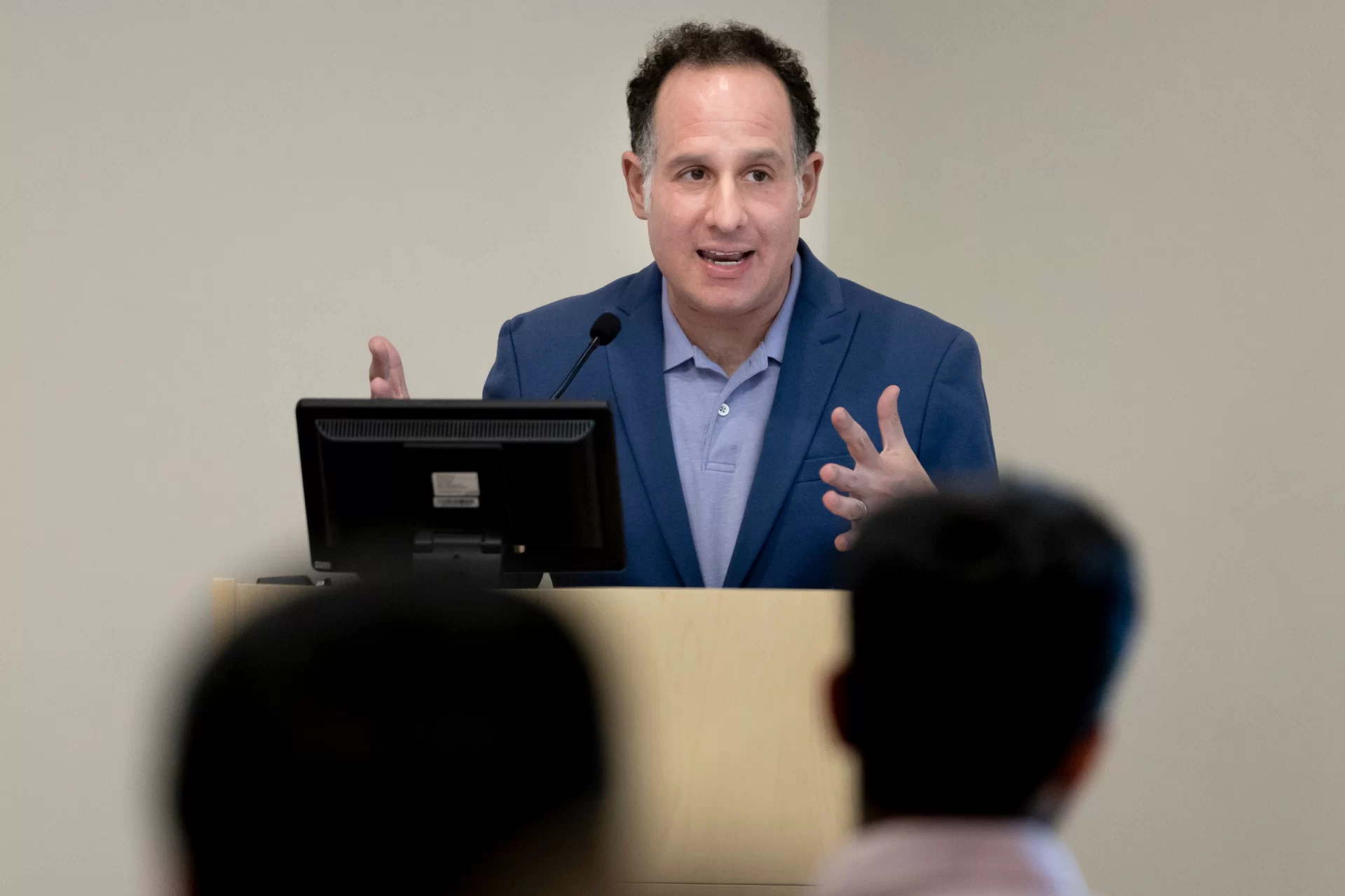We began our “What It Took” series last fall to share stories from Bates people about how they’ve learned to become resilient in tough times, with a focus on the skills and strategies that help them double down when the road gets rough.
What we didn’t know at the time is that how we tell stories of our life — how we narrate our experiences — goes a long way toward achieving resilience and psychological well-being.
Now we do, thanks to Jonathan Adler ’00, a clinical psychologist and professor of psychology at Olin College of Engineering and a senior lecturer at Harvard Medical School.
Storytelling is one of the oldest art forms, as well as an important tool that helps us make informed decisions and navigate the path ahead.

Adler has conducted research on narrative identity, which is the idea that the stories we weave together about our reconstructed past, perceived present, and imagined future help us make meaning out of the things that happen to us. Adler recently shared his research with host Shankar Vedantam on the popular NPR show Hidden Brain where he explained how research shows that whether we look back at past events plays a critical role in our mental health.
One study Adler conducted looked at 600 narratives from about 50 adults who came to a psychotherapy clinic for a wide range of issues, from depression, anxiety, and eating disorders to a simple desire to improve friendships and relationships. Adler and his colleagues measured the clients’ psychological well-being using standard indicators both before therapy and after each session — then they looked at the stories the clients told.
“What was really cool is that using statistical modeling techniques we found that the stories actually changed before people’s psychological well-being changed. It was as though people were narrating a new version of their lives, and then a week or two later, their well-being would sort of catch up with the new story,” Adler said.

When Adler learned about this BatesNews series, he wanted to help — but he encouraged us to seek out stories that don’t necessarily have a happy ending, that don’t end with a feeling of redemption. Those types of stories are powerful, too, Adler said, and they offer another narrative option for those suffering through difficult times.
“It’s a pretty profound thing to say, ‘I’ve come out the other side of this challenging thing, and it didn’t make me happy, but it did help me understand some things about my life and my values.’ That in and of itself is a worthwhile outcome,” Adler said. “I think stories that demonstrate the importance of searching for meaning push back against what I call the ‘press for redemption’ in our culture.”
As an example, he points to a study he helped conduct involving the parents of neurodivergent children on the autism spectrum and parents of non-neurodivergent children.
One woman who stood out was the mother of a child with severe autism spectrum disorder. Her child required a lot of care and attention, yet when she talked about caring for this child, she told a story of a love that made her learn more about herself. Adler said these lessons are valuable.

“Meaningfulness and happiness are separate qualities we search for in life and both are important.”
Jonathan Adler ’00
“She would not say, ‘Having this child with severe autism spectrum disorder was a gift.’ That’s a socially appropriate story. And some people genuinely do feel like that, and that’s great. But that’s not the only option,” he explained.
“I think she would say, ‘This has been really hard. I don’t know that I would’ve asked for this challenge, but because I have had this challenge, I have learned things about myself that I might not otherwise have.’ And there’s a positivity to that. But it’s not necessarily redemptive. Meaningfulness and happiness are separate qualities we search for in life and both are important.”
A decade ago, Adler began working with the nonprofit Health Story Collaborative, which helps patients with all kinds of illnesses share stories of struggle. The organization hosts “Healing Story Sessions,” where patients (and sometimes medical providers) share their stories. These events are sometimes performed in small private living rooms, sometimes in large auditoriums. One that is held annually at Massachusetts General Hospital draws several hundred. But whatever the size of the crowd, Adler called them “transportive and therapeutic” for both the storytellers and the audience.
Like the story of the mother above, these sessions support the idea that our life stories are not always redemptive. “When we’re working with people who have terminal illnesses, they sometimes say, ‘Happiness is not an option for me. That’s not the goal. I need to make sense of what this is all about.’ And that is valuable in and of itself,” Adler said.
When Adler attended Bates from 1996 to 2000, he obviously didn’t know he would go on to do important research in a new field, but he knew he was passionate about both his psychology major and his interest in theater, directing three plays with the Robinson Players. Today he uses both disciplines in his work.
Twice a year at Olin, he leads a story slam where students, faculty, and staff tell short stories about their lives. He takes engineering and business students who have no experience in theater and helps them deliver thrilling performances. He also leads story slams at other colleges, such as Wellesley College, and has led them for major organizations. Adler also has become a playwright. His play Reverse Transcription (co-authored with Jim Petosa) premiered Off-Broadway in July of 2022.

An important element of the stories we tell is what psychologists call the “chapter breaks,” the moments in time where we draw the connection between the good and bad times, because if we see things as transitioning from good to troubling times, we can get stuck in that contaminative mindset.
Adler found this to be true in his own life story, which he shared a piece of on the Hidden Brain episode “Healing 2.0: Change Your Story, Change Your Life.” Adler explained to host Shankar Vedantam how, as a young gay man in the 1990s who had not yet come out, he spent his semester abroad in Australia hoping to learn more about himself in a new environment. But he just ended up lonely.
After he returned from Australia, Adler threw himself into his studies. He graduated as one of the top students in his class and took a research job at Harvard University. He then applied to 10 graduate schools — but only got into one.
“At the time, it felt like a shock. I imagined that I might have more choices when approaching this next big chapter of my life,” Adler said on Hidden Brain. “If you draw the end of a chapter break with me coming back from Australia, it looks like good turned bad, it looks like contamination. But if you expand the chapter until I’m already ensconced in graduate school, then it looks like redemption.”

As it turned out, the one school Adler got into — Northwestern University — was the research base of Dan McAdams, a pioneering scientist in the study of narrative identity, who became Adler’s mentor and, eventually, his scientific collaborator. Chicago also was where Adler met his future husband.
“I look back at this turning point in my life with a profound sense of, first of all, gratitude, but also redemption,” Adler said on Hidden Brain. “What at the time felt like close to failure — that all my work in college, and all my ignoring of my personal life for the sake of my intellectual life had presented me with only one option — now feels like the universe trying to make sure I found my way. Within a year, I was having a more gratifying intellectual experience than I ever imagined, and I was in love.”
Now with his son and daughter — ages 8 and 10 — Adler is trying to be mindful of helping them narrate healthy stories, as he and his husband, Jonathan Lewis, raise them.
“I’m really thoughtful when I’m helping our kids recount their day to think about both the event and the feelings of the day. I want them to have as broad a sort of narrative toolbox as possible when they become narrators of their own lives,” Adler said.


